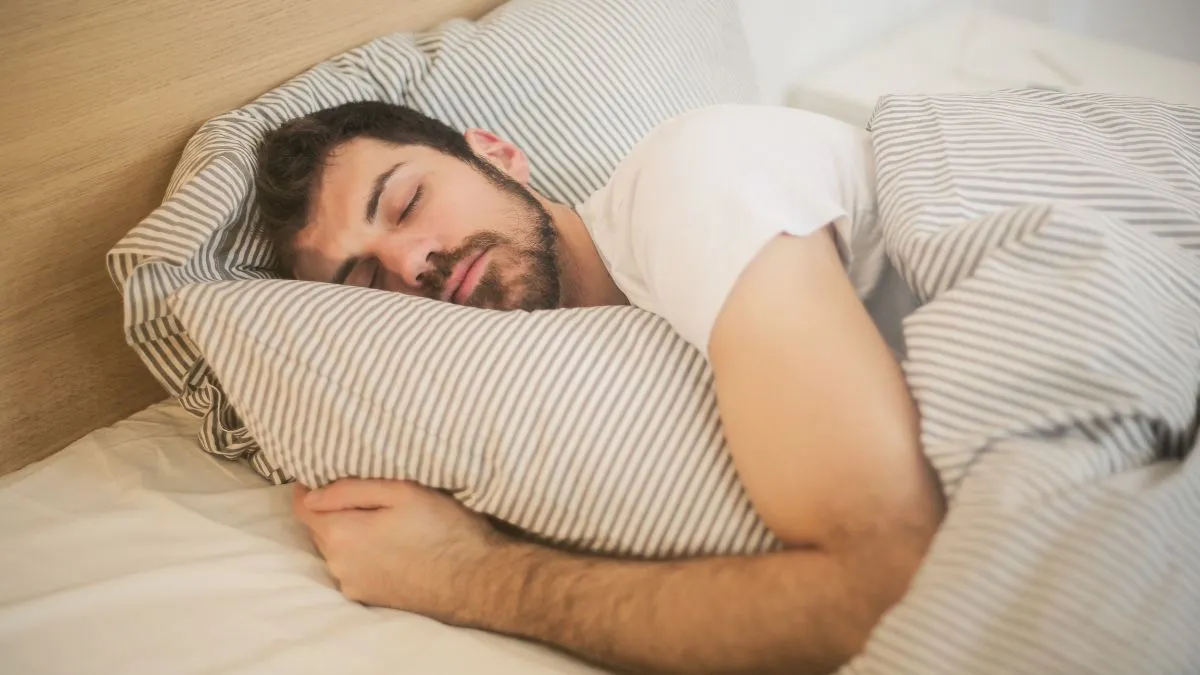- By Bornika Das
- Thu, 03 Apr 2025 07:26 PM (IST)
- Source:JND
Nighttime Habits For Deep Sleep: Some people often struggle to fall asleep, which leads them to feel drained and remain unfocused the following day. A good night’s sleep is extremely important for overall well-being. Insufficient sleep at night can result from stress, an overactive mind or an irregular bedtime routine. However, incorporating small changes in the nighttime routine can help to get deep and peaceful sleep. Healthy sleeping habits help to train the body and relax the mind, making it easier for people to get sound sleep.
There are several bad habits that people practice before going to sleep which make them struggle to get a peaceful and uninterrupted slumber. Sleepless nights often lead to exhaustion, stress, and poor health. Some tweaks in the lifestyle routine, especially at night, can promote deep, peaceful sleep. If you assume that your current sleep habits are firmly ingrained, there are certain ways to change and improve them. Here’s a list of five best nighttime habits that will help you to fall into deep and peaceful sleep.
Nighttime Rituals To Try For Better Sleep
Sleep Schedule
It is important to maintain a consistent sleep schedule. Practice going to bed and waking up at the same time every day. This will help to regularise the internal clock. The consistency in sleep schedule trains the brain to identify the time when to sleep, making ot easier to fall asleep quickly and wake up refreshed.
Bedtime Routine
Incorporate a relaxing pre-bedtime routine that will help the brain to signal that it’s time to sleep. Practice activities like reading a book, taking a warm bath, meditation, and deep breathing to reduce stress and boost relaxation. Do not indulge in activities like watching TV or scrolling phone.
Sleep Environment
The sleep environment should be perfect to make you fall asleep. Keep your bedroom cool, dark and quiet to enjoy restful sleep. Invest in comfortable mattresses and pillows and light-blocking curtains to get the right sleep environment.

Good Sleeping Habits (Image Credits: Canva)
Caffeine And Heavy Meals Before Bed
Indulging in caffeine, nicotine, and alcohol can disrupt sleep patterns, making it harder to fall asleep. However, eating heavy or spicy foods before bedtime can cause discomfort and indigestion. You should avoid these sleep disruptors at least 2-3 hours before bedtime.
Screens And Blue Light Exposure
The blue lights emitted from smartphones, tablets and computers often disrupt sleep as it suppresses melatonin, the sleep hormone. Do not engage in your phone for at least an hour before bedtime. Rather, enjoy soothing activities like journaling, listening to soft music and practicing mindfulness.
